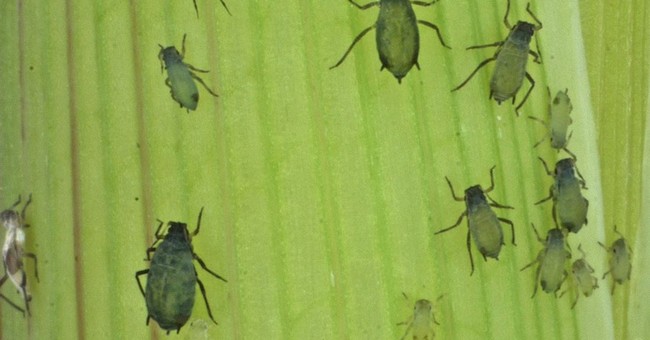
Amidst the human tragedy that is the coronavirus pandemic, it’s easy to lose sight of the fact that persistent threats to human health and well-being that pre-existed COVID-19 still remain.
Insect borne diseases, hunger, and malnutrition, constantly simmering threats that only rarely get the attention of the pandemic, kill and harm far more people every year than the coronavirus.
Whatever the new post-corona normal will be, we should sustain and increase efforts to reduce premature mortality from starvation and disease.
Thankfully, biotechnology companies are continuing to develop animals that could both help reduce hunger even as world population grows and increasing numbers of people in developing countries are beginning to include more animal protein in their diets, and that could reduce disease by reducing the numbers of illnesses spread by insects.
Among the biotech innovations currently being developed, tested, or marketed that could help reduce hunger and disease are genetically modified cattle, goats, pigs, salmon, mosquitos, and moths.
Reuters recently reported scientists in the United States and Britain are using the gene-editing tool CRISPR-Cas9 to create farm animals that could be used as “surrogate sires,” essentially sterile blank slates that could then be transplanted with stem cells producing sperm, carrying desired traits.
The process could allow for widespread dissemination of genetic material with traits that produce healthier, more productive animals using fewer resources such as feed, medicines, and water.
“With this technology, we can get better dissemination of desirable traits and improve the efficiency of food production,” Jon Oatley, a reproductive biologist at Washington State University, who co-led the work, told Reuters. “If we can tackle this genetically, then that means less water, less feed and fewer antibiotics we have to put into the animals.”
Alternatively, if one is worried about climate change, this technology might be used to produce animals that need less land or crops for food, and/or that digest food more efficiently, reducing livestock methane emissions.
One must also remember that seafood accounts for approximately 20 percent of the animal protein consumed annually, yet many fish stocks are in decline. With this in mind, in mid-2019, the U.S. Food and Drug Administration approved the importation of AquaBounty’s genetically modified Atlantic salmon eggs to be raised in the United States.
The bioengineered fish grow to maturity twice as fast as wild salmon, meaning they can be harvested and replenished much more quickly. Raised in controlled, land-based facilities and bred to be sterile, the fish are incapable of affecting wild salmon. Aquabounty’s salmon could become the world’s most sustainable salmon having a smaller environmental footprint than traditional salmon farming or commercial harvesting on the open seas.
Nor have harmful insects been ignored by the biotech industry. For instance, biotech company Oxitec has developed a modified version of the diamondback moth, which could lead to the pest’s extinction. Diamondback moths, the most resistant of all insects to pesticides, can wipe out entire fields of cold weather crops including, broccoli, cabbage, canola, cauliflower, and kale, resulting in billions of dollars in lost crops each year. The Oxitec diamondback moths contain a lethality gene, which when they mate with moths in the wild, prevents the female offspring from developing, so they die as larvae, with half male offspring in each generation inheriting the “lethality” gene meaning the entire population declines over each generation.
Oxitec is also at the forefront of developing genetically modified mosquitos that could reduce the spread of mosquito-borne diseases such as chikungunya, dengue fever, malaria, yellow fever, and the zika virus.
The World Health Organization reports mosquitoes are among the deadliest animals on earth, attributing 438,000 deaths to the insects from malaria alone in 2015. Other mosquito-spread diseases claim thousands more lives each year.
Oxitec’s mosquitos have been modified so when they mate with females, their offspring are incapable of surviving to adulthood. Laboratory tests and field tests have indicated widespread introduction of this mosquito could dramatically reduce the population of the disease-spreading mosquitoes.
Federal government and state regulators in Florida recently approved the introduction of Oxitec’s mosquitos into a small area of the Sunshine State. This follows the actions of the governments of Brazil, the Cayman Islands, Malaysia, and Panama, which have allowed Oxitec to release its bioengineered mosquitos at selected sites. Brazil reported mosquito populations fell by at least 90 percent in the locations Oxitec’s mosquitos were released in the year following their introduction.
Unfortunately, environmental extremists have targeted genetically modified products for extinction, fighting to delay the approval of or suing to block the introduction of bioengineered products, saying genetic engineering is akin to “playing God.”
While caution must be exercised with the introduction of any new technology, genetic engineering carries much promise, and the crops and animals developed using it are the most intensively studied and tested technologies ever to be produced. If the search for a COVID-19 vaccine is teaching us anything, it is that too much caution can be as deadly or even deadlier than too little caution. With millions of lives on the line, research and regulatory approvals should be expedited, not delayed.
If environmental fear-mongers successfully block the use of bioengineered animals, they will be condemning millions of people to unnecessary suffering and early deaths—now that would be playing God (or the devil) with a vengeance.
H. Sterling Burnett, Ph.D. ([email protected]) is a senior fellow on energy and the environment at The Heartland Institute, a nonpartisan, nonprofit research center headquartered in Arlington Heights, Illinois.





